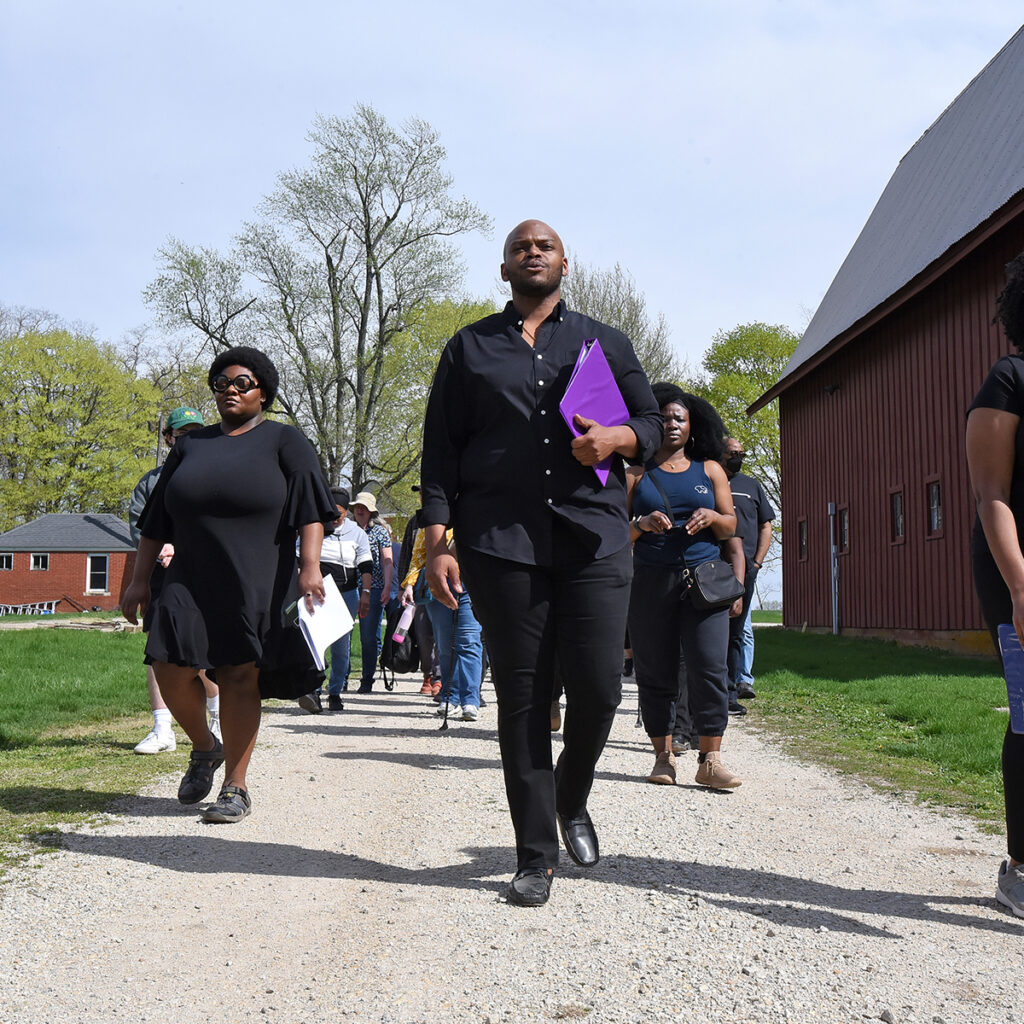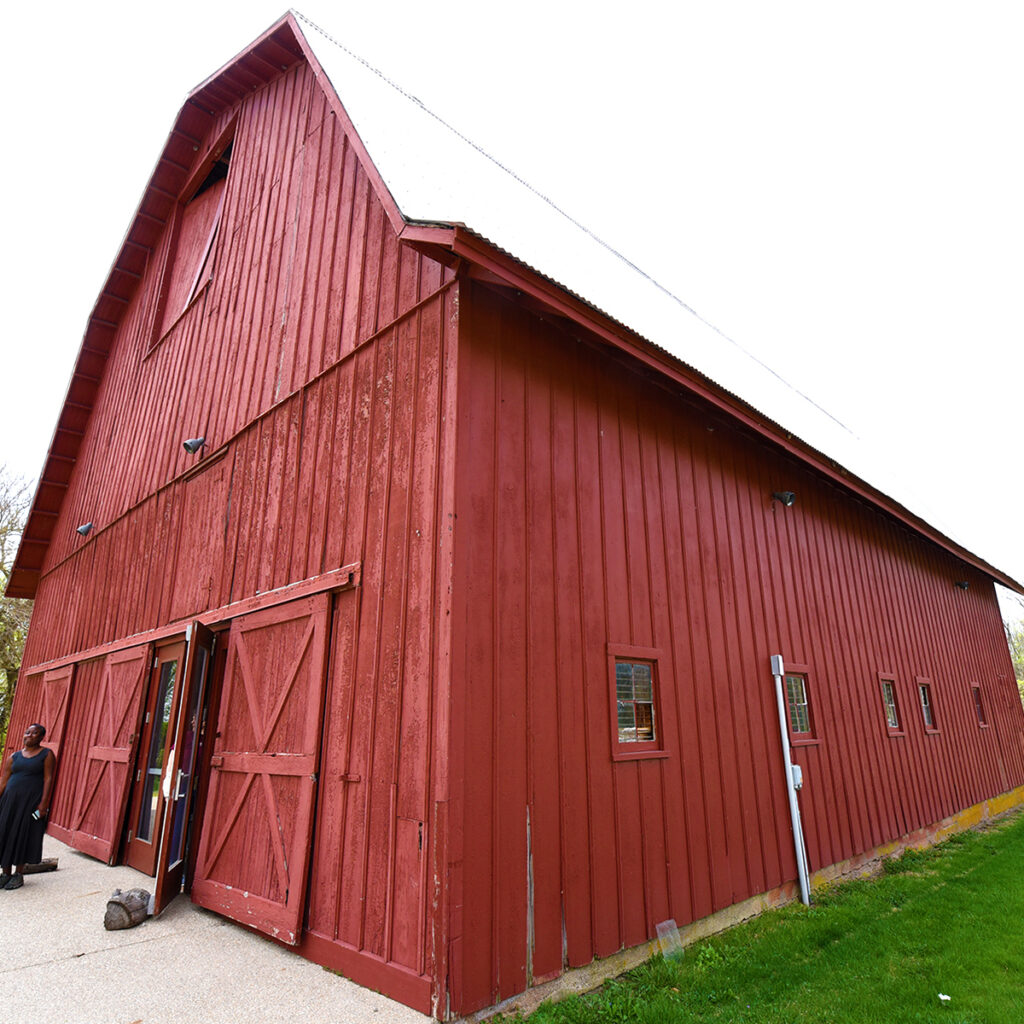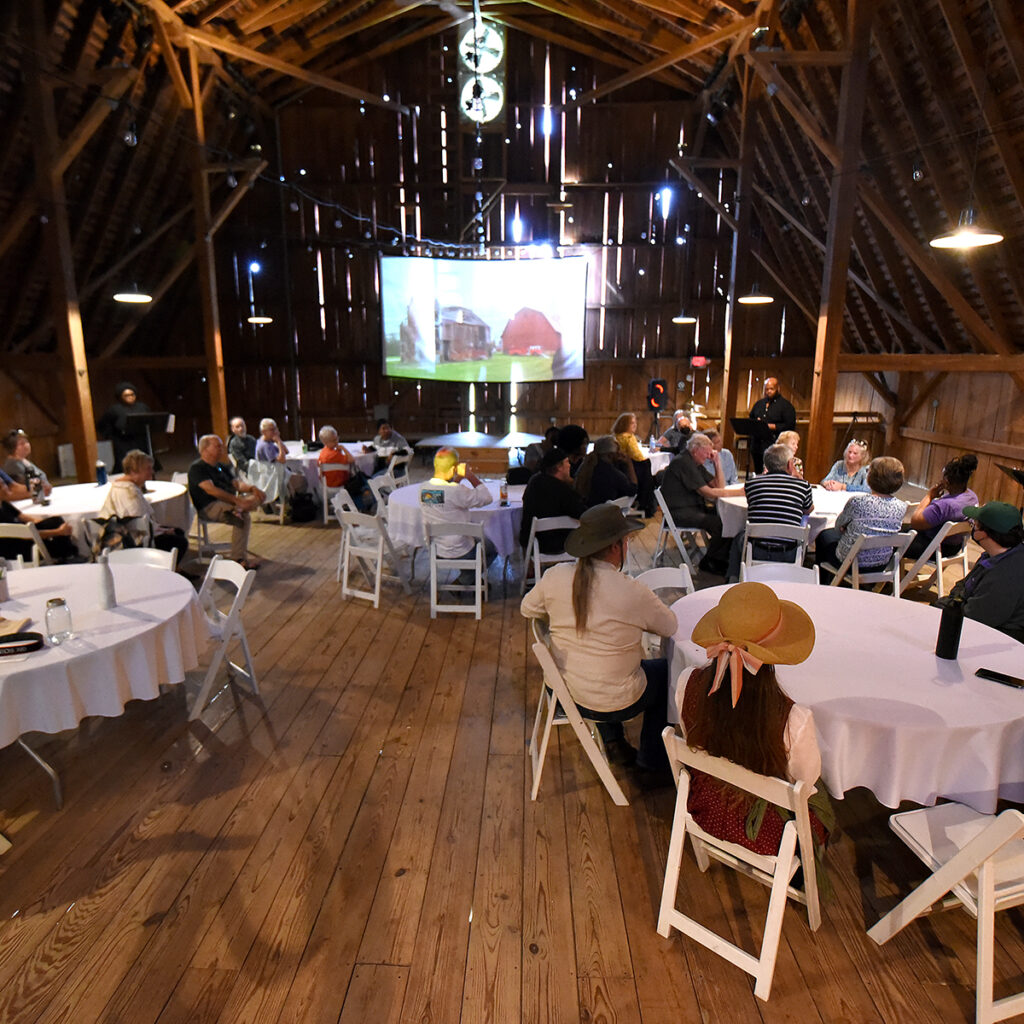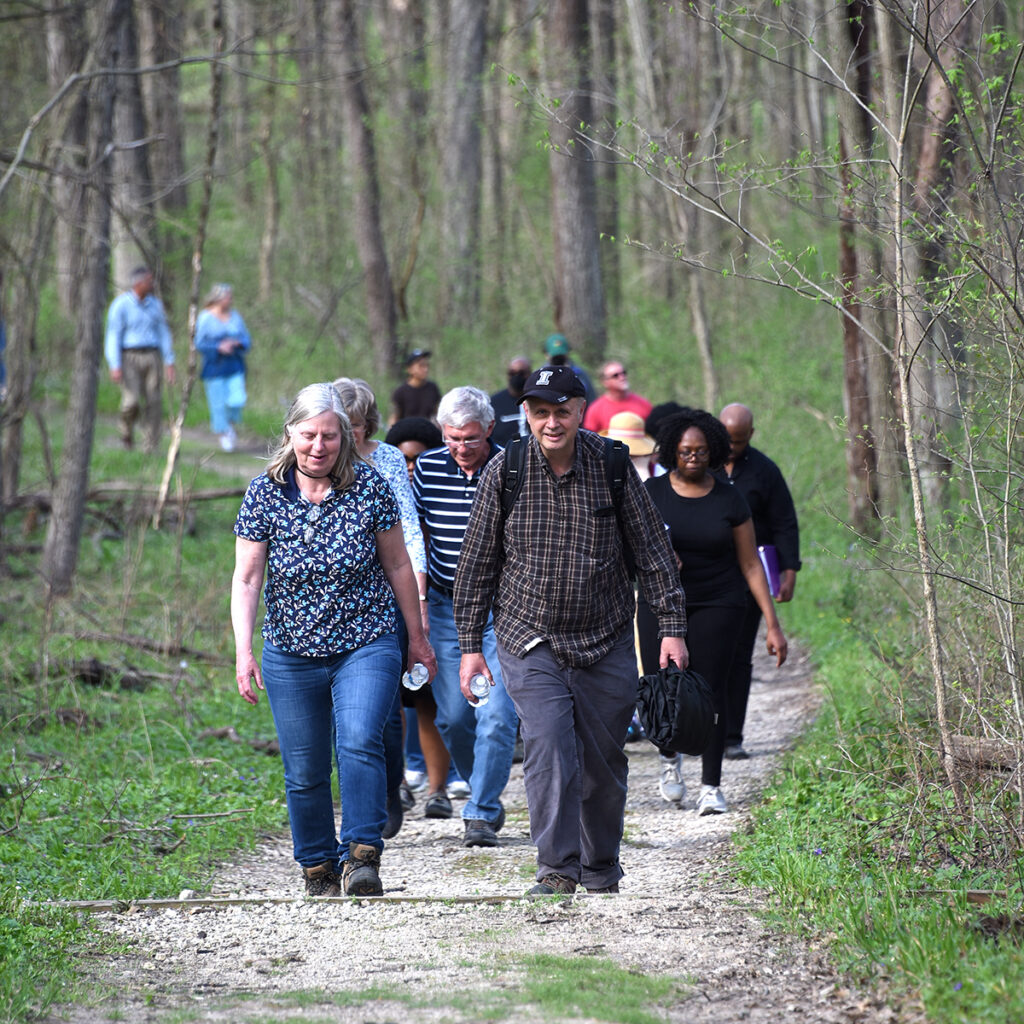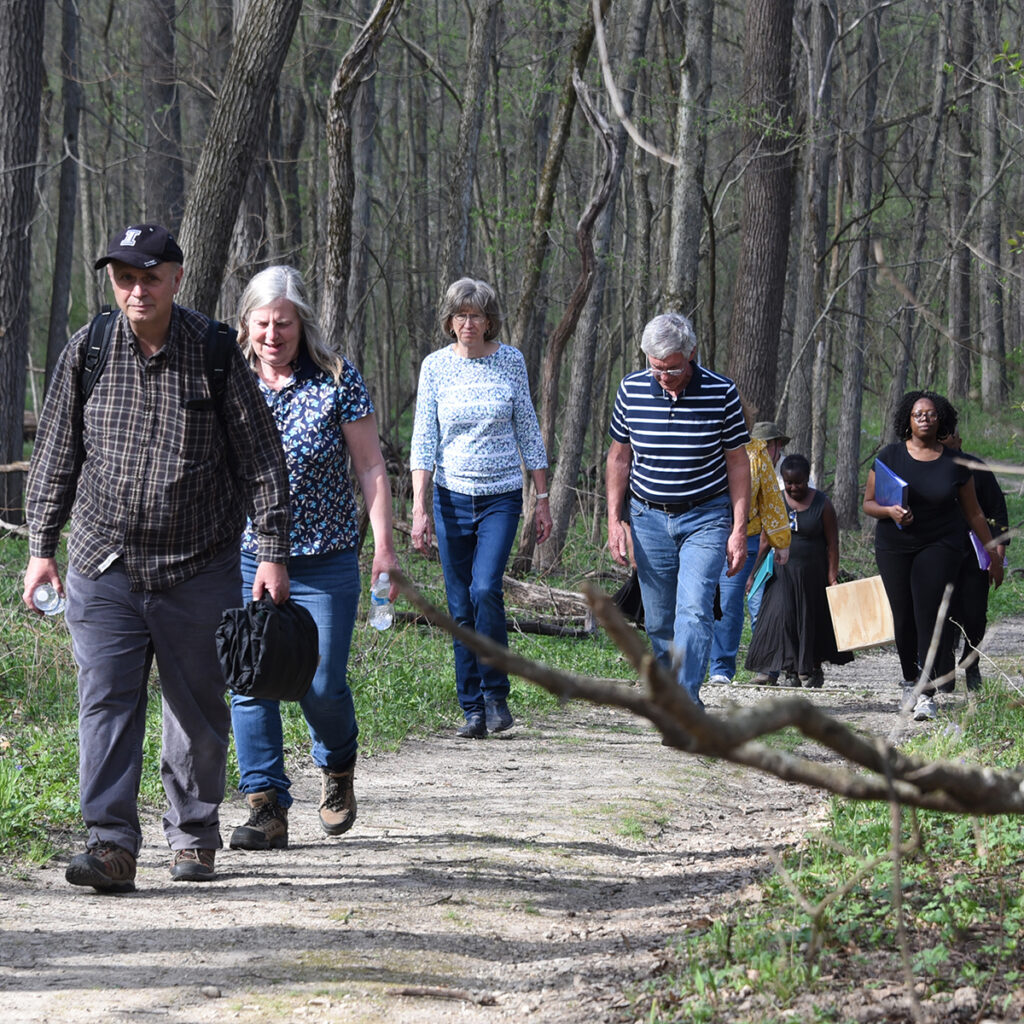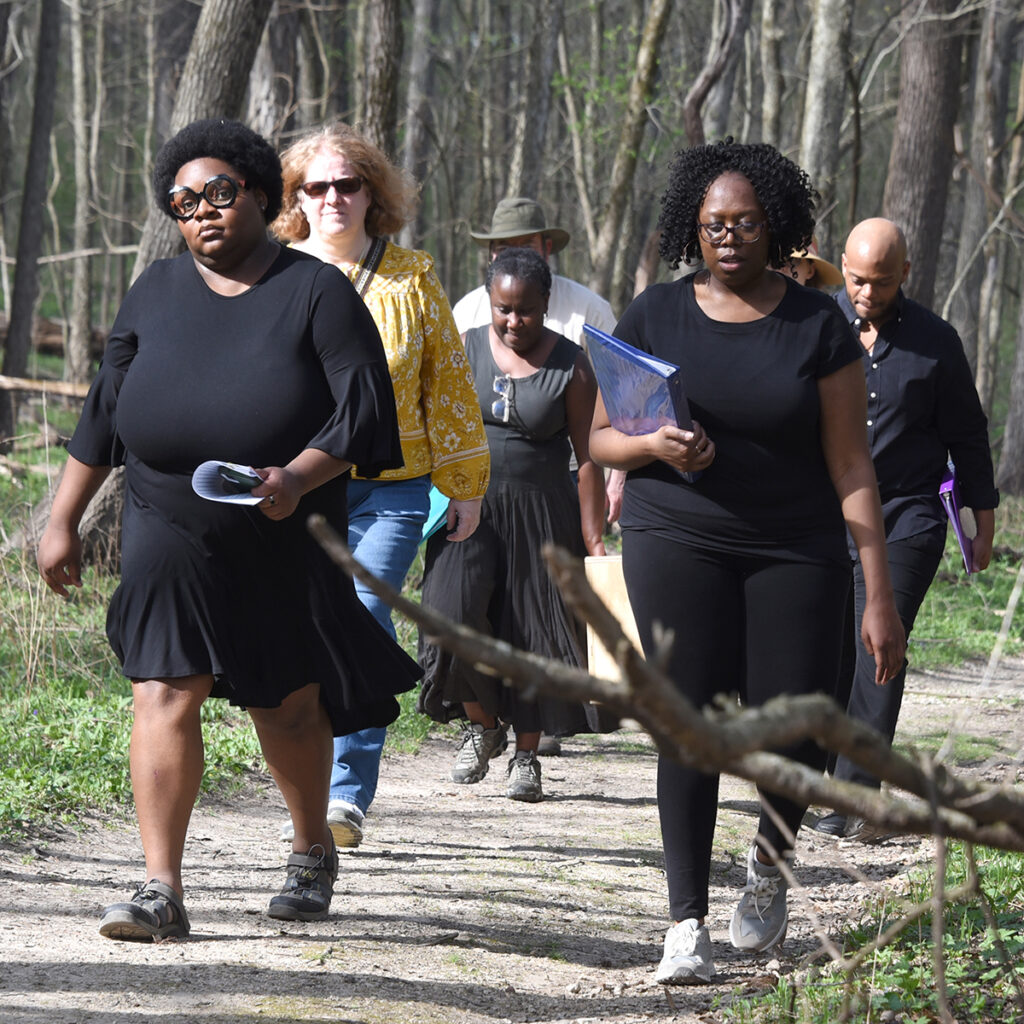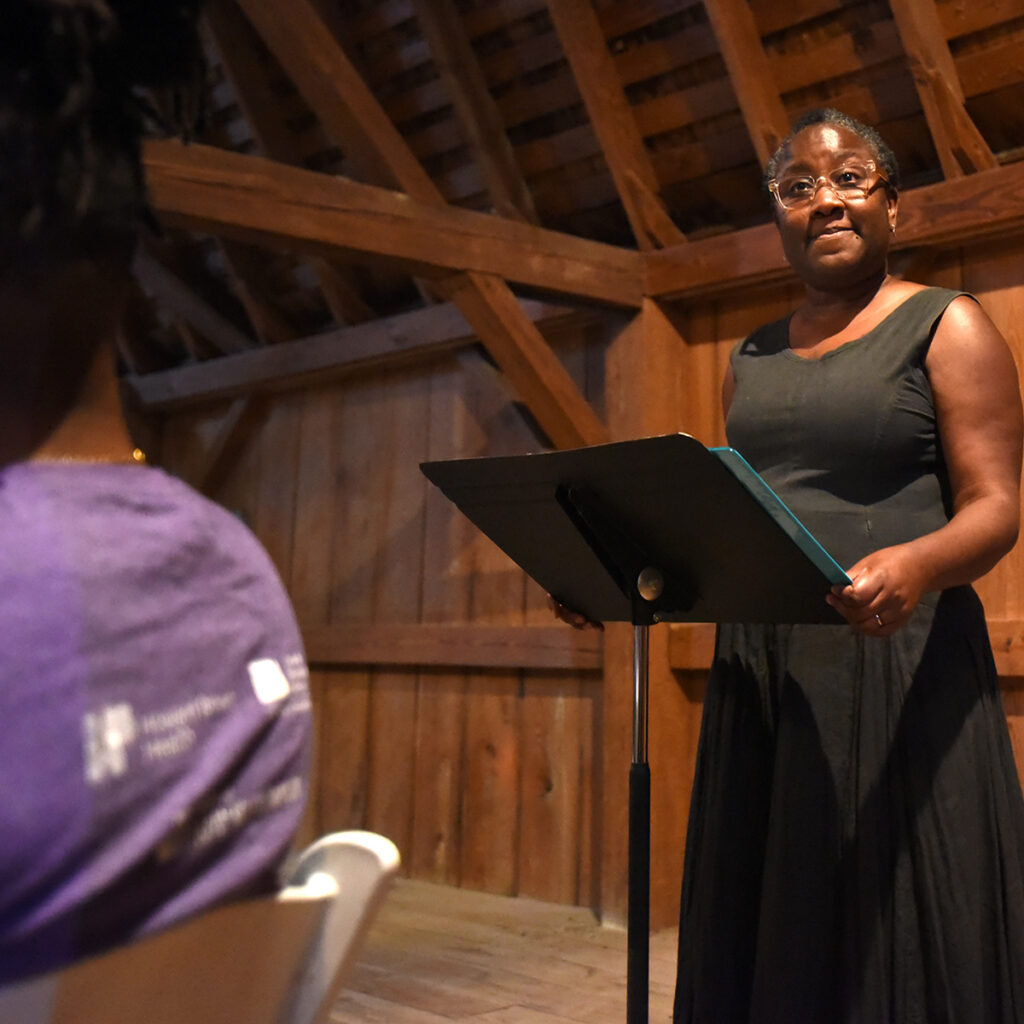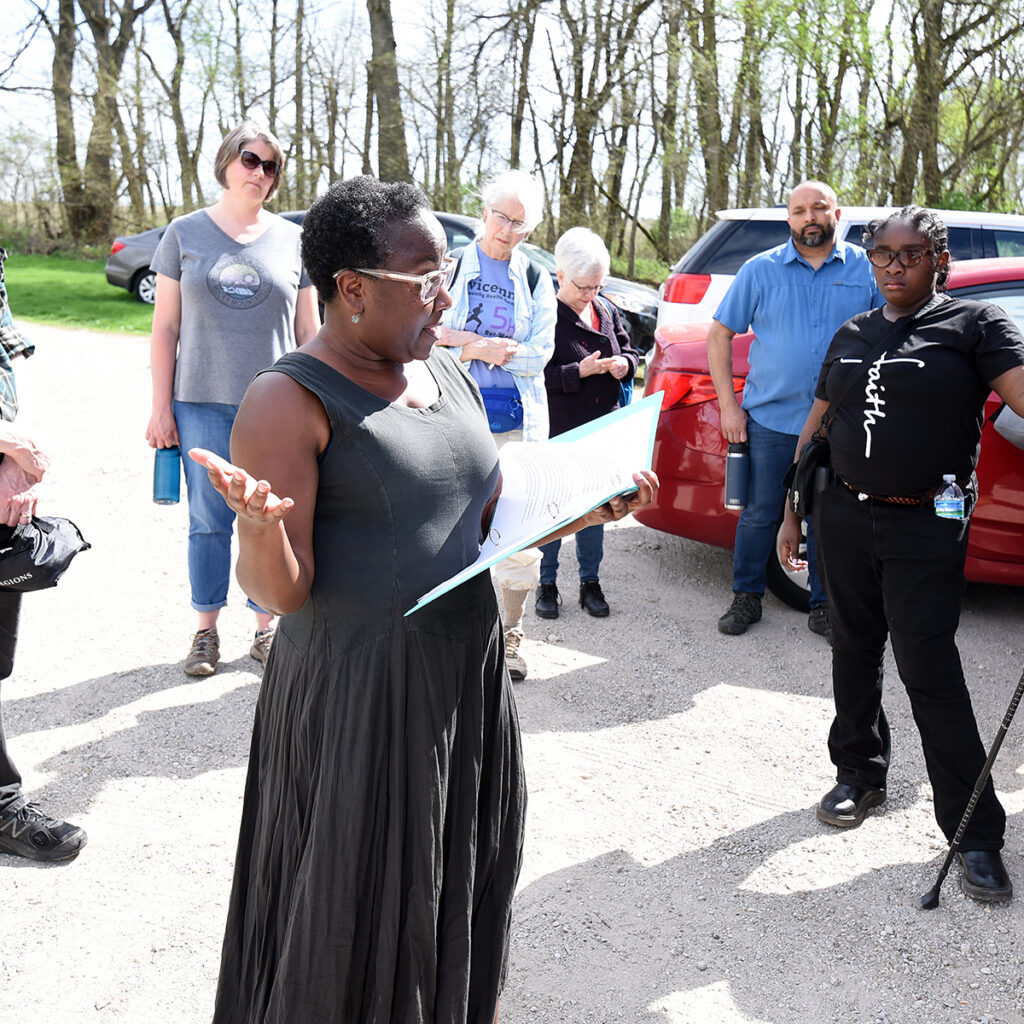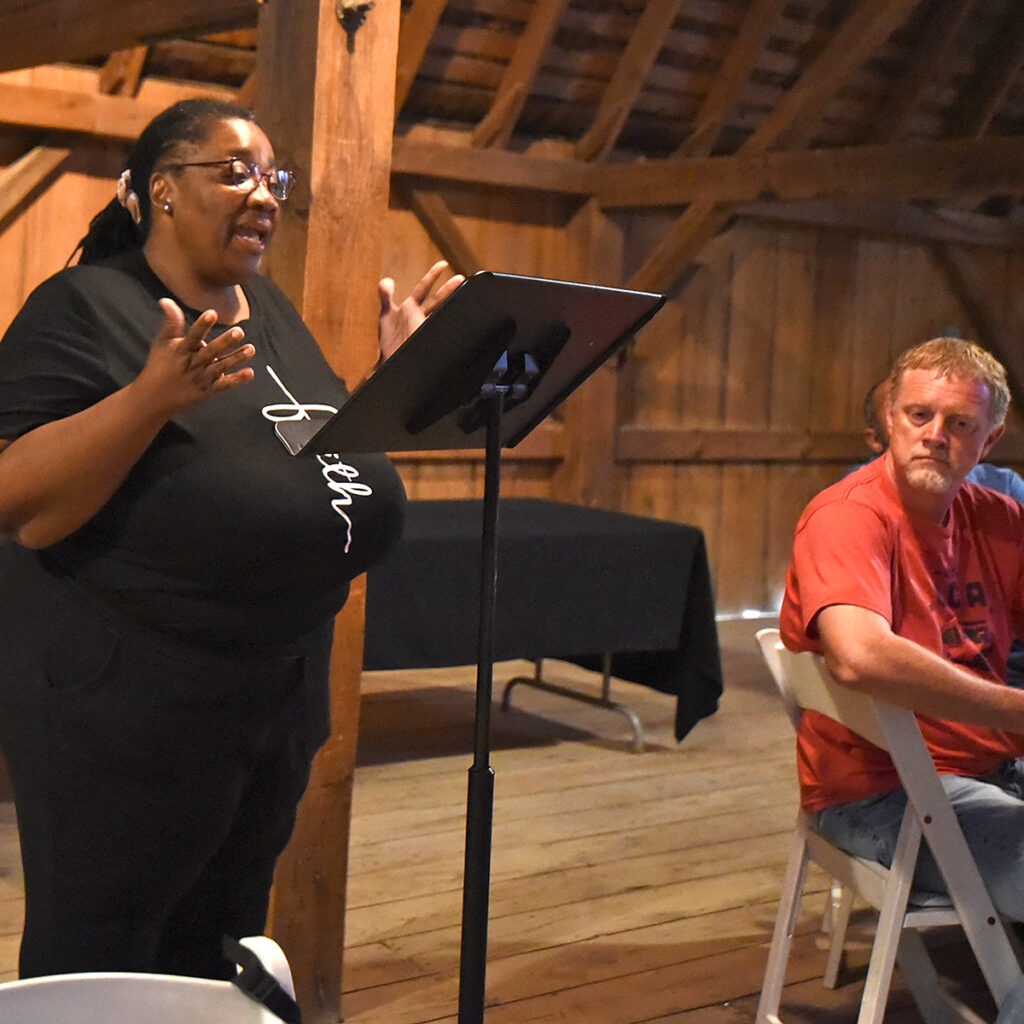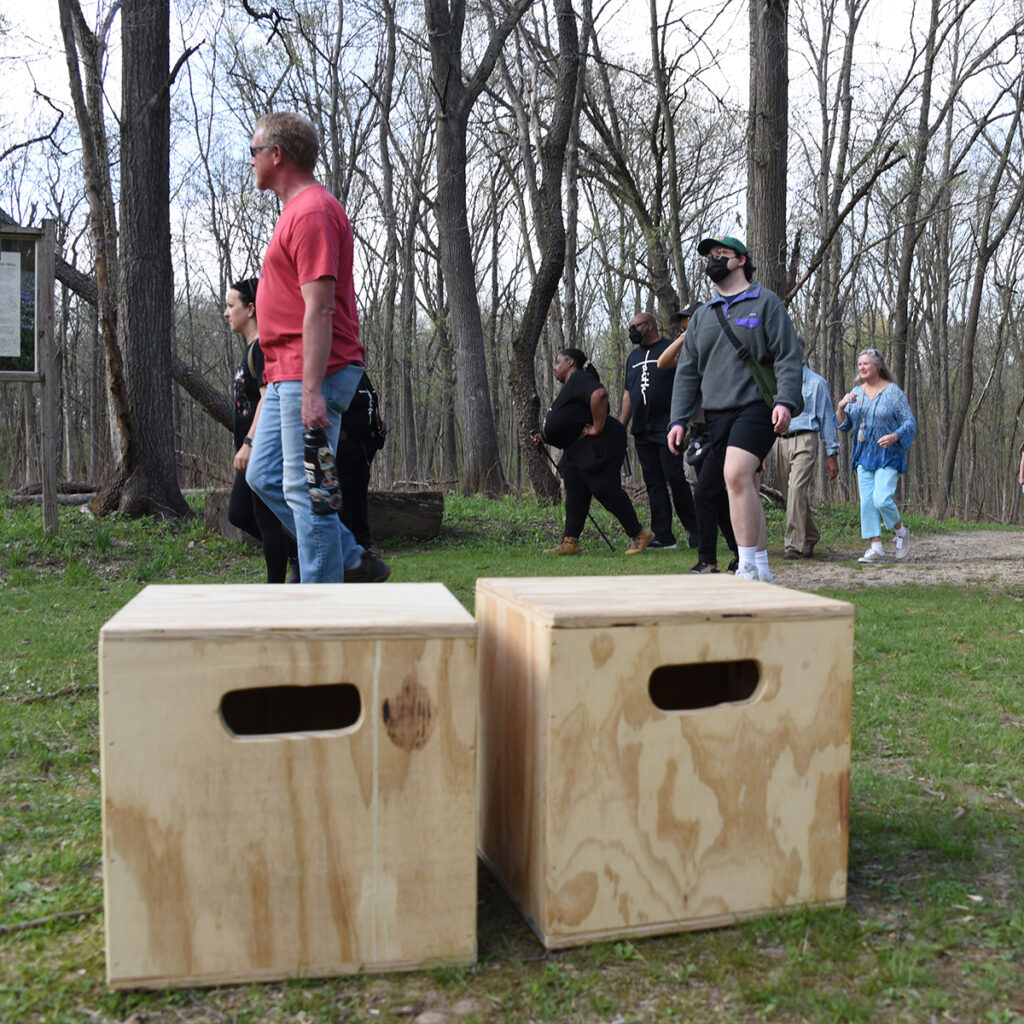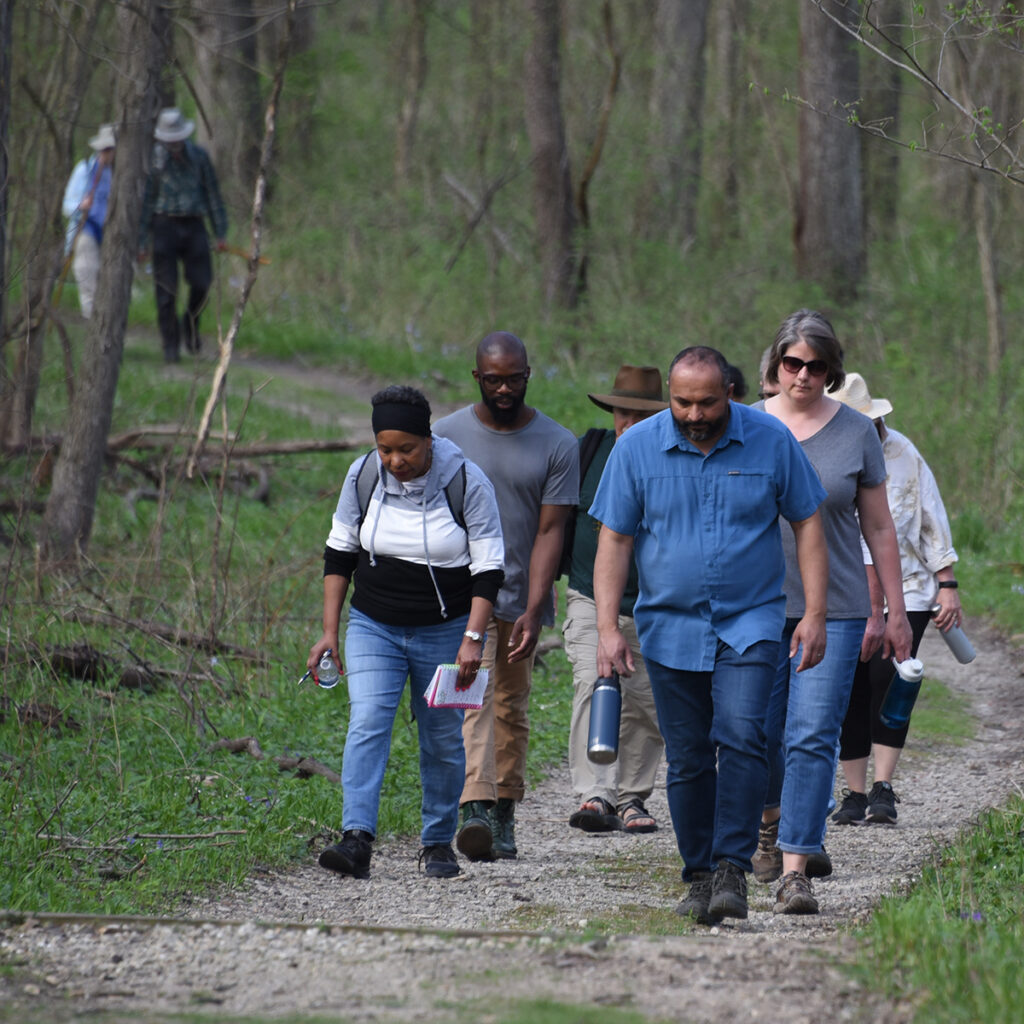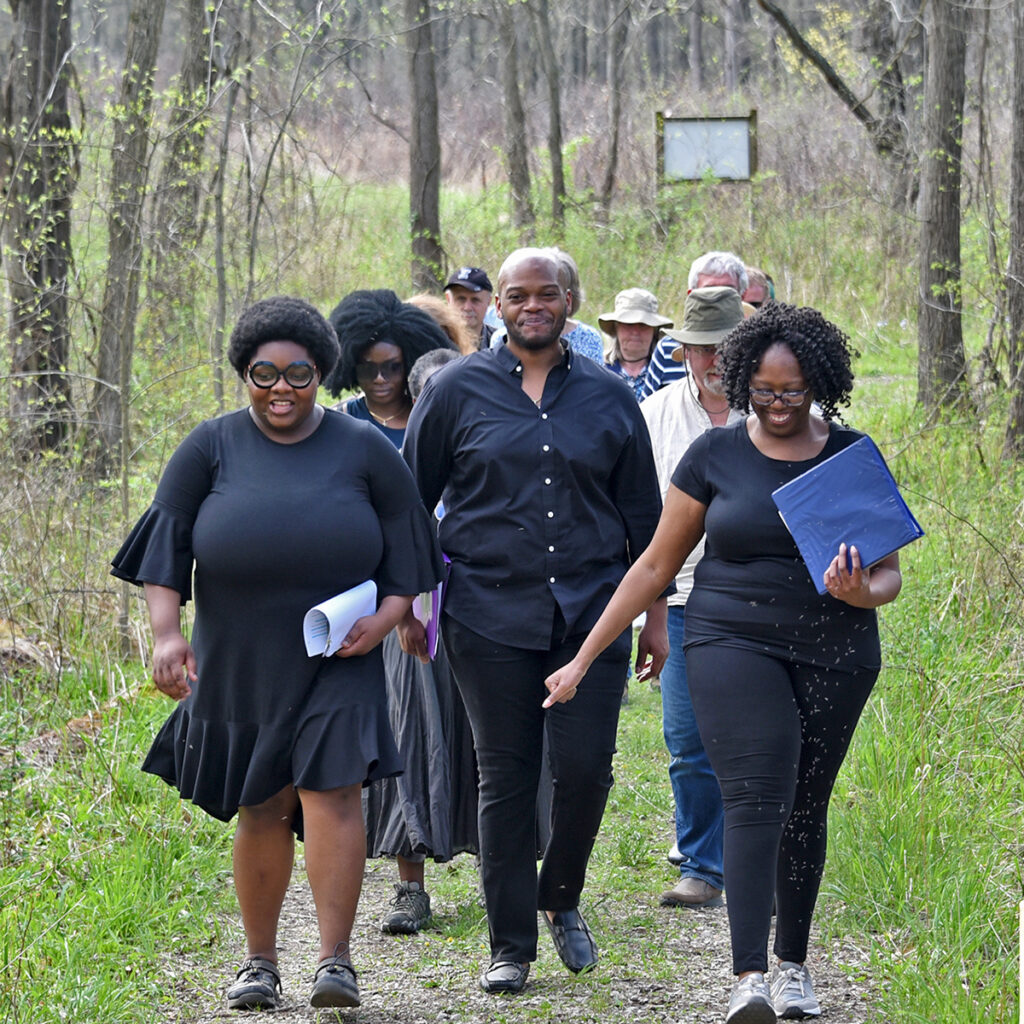Playwrights and former Allerton Artists-in-Residence Nicole Anderson-Cobb and Latrelle Bright delivered a powerful event with “unsettled: An African American Reflection on the Potawatomi Trail of Death,” presented in the Music Barn on April 15.
During their time at Allerton last spring, Anderson-Cobb and Bright researched the history of the land that eventually became Allerton Park.
During “unsettled,” they told the story of the Potawatomi Trail of Death, which in 1838 saw 859 indigenous American Potawatomi forcibly removed from their homeland in Northern Indiana and marched to Eastern Kansas. Their path led them through Monticello, where three who died earlier on the march were buried.
“As African American educators, artists and parents of Central Illinoisans, Latrelle and I wanted to examine the history of the land that became Allerton Park and Retreat Center,” said Anderson-Cobb.
“Among other topics we researched — since the 1838 Potawatomi Trail of Death passed through Monticello — we decided to create an experience for participants that reflected on the 1838 Potawatomi Trail of Death and the relevance of those incidents for Central Illinoisans today,” she added.
And that’s how “unsettled” was born. Those attending the event heard a brief presentation on the history of the land Allerton Park sits on, then hit the trails to gain more insight and education on the topic. Adding to the experience was a trio of talented musicians who sang both inside and on the trail.
Anderson-Cobb said she was grateful to Dee Lund at the Piatt County Historical Society for her help in researching their topic, as well as for the resources available at the Allerton Public Library.
